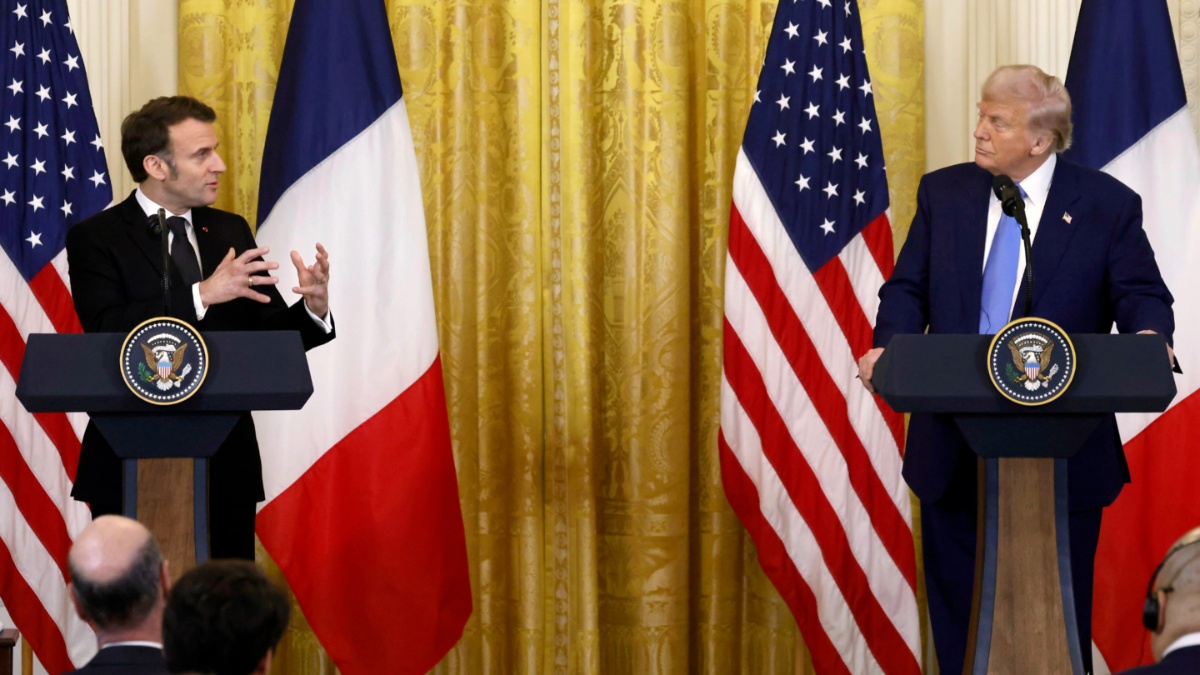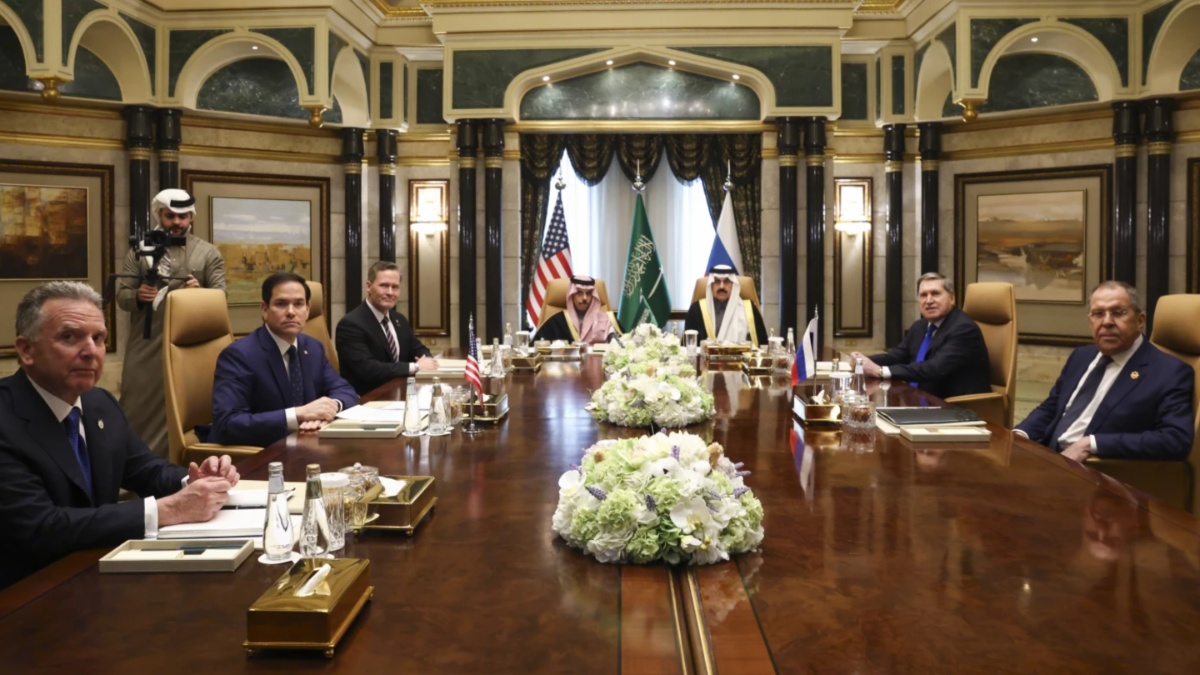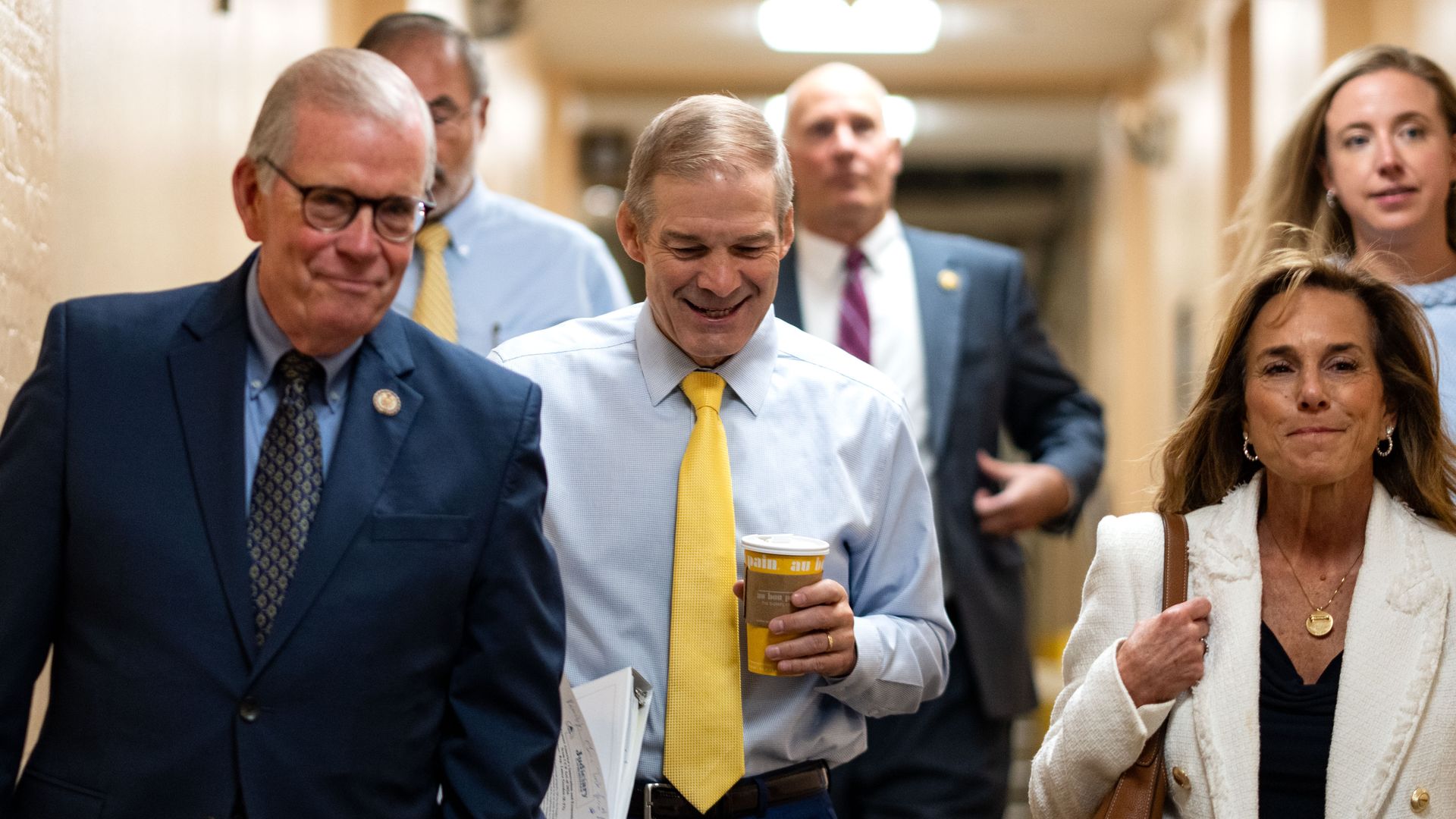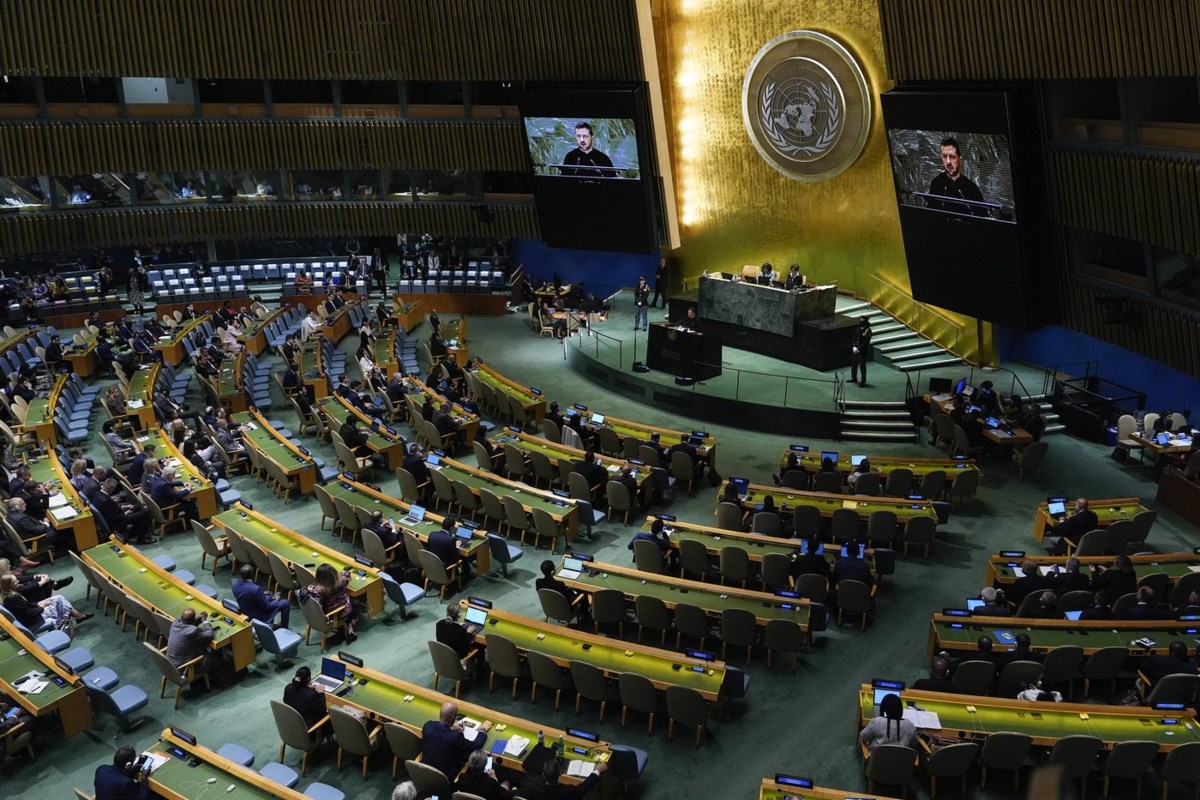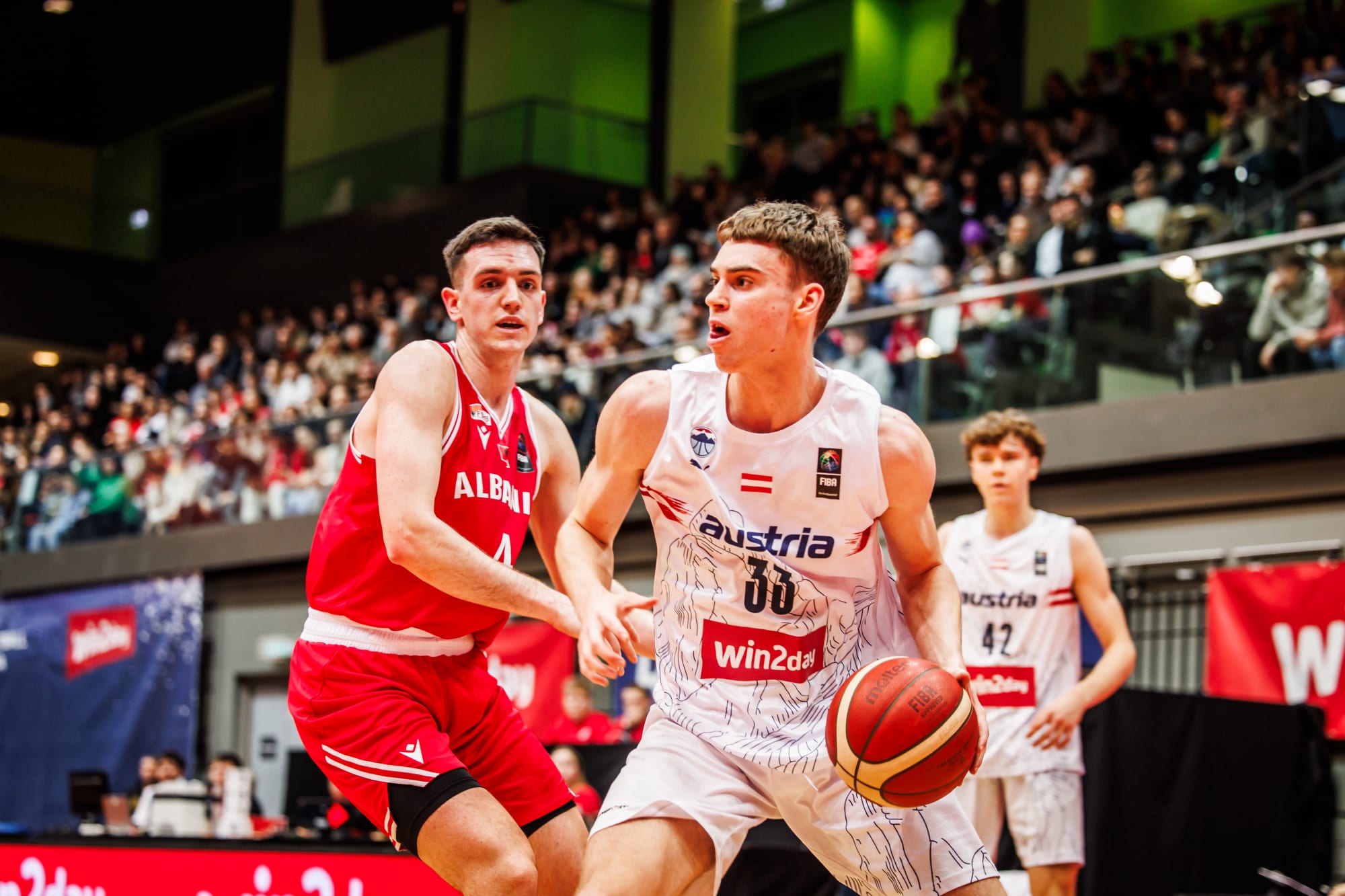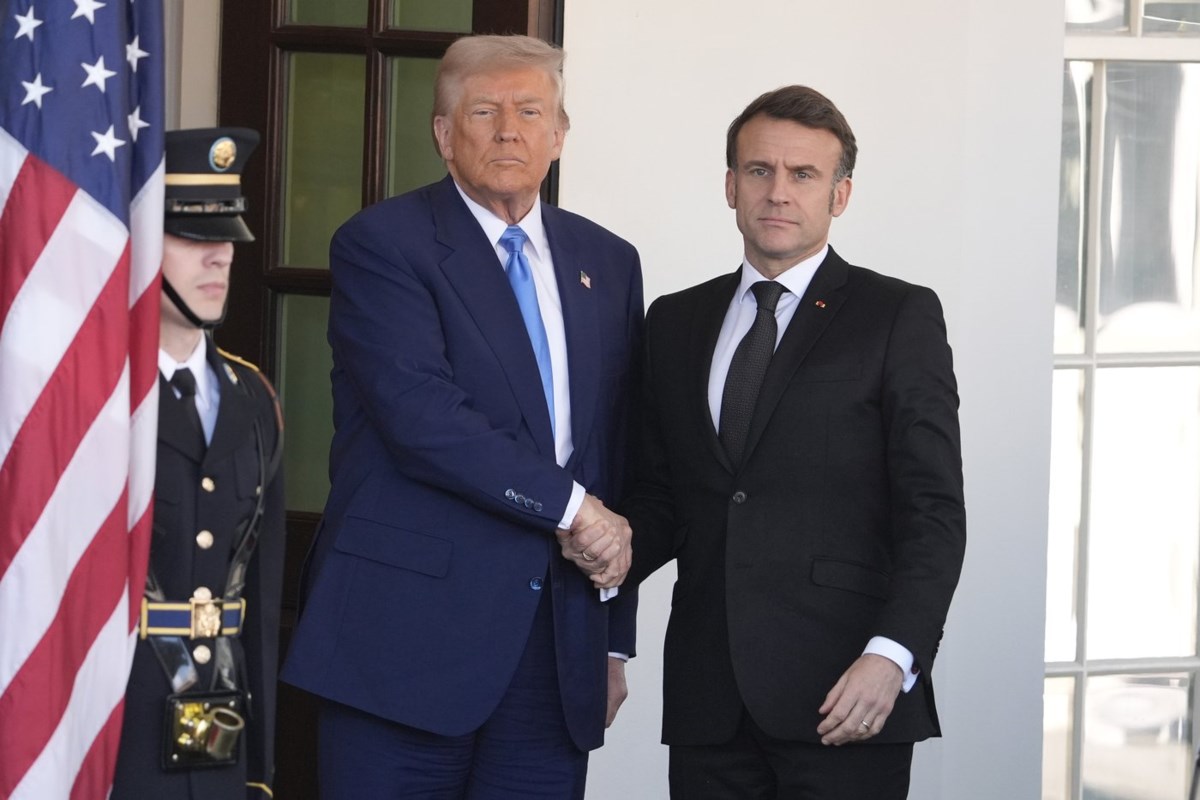US President Donald Trump on Monday was hopeful that Russia’s war against Ukraine is at the endgame stage, as he hosted French President Emmanuel Macron at the White House on the third anniversary of the invasion. Macron, though, delivered a stark warning, insisting that any peace deal with Moscow should not equate to Ukraine’s capitulation.
Their talks occurred in the backdrop of changing transatlantic relations, with Trump adopting a new foreign policy direction that has alienated European leaders as he attempts to end the war in a hurry.
Trump says Putin receptive to European peacekeepers
In their meetings, Trump said Russian President Vladimir Putin would welcome European peacekeepers in Ukraine. “Yeah, he will accept it,” Trump said. “I have asked him that question. If we do this deal, he’s not looking for more war.”
He also intimated that a deal could be sealed within weeks, with Ukrainian President Volodymyr Zelenskyy to soon travel to Washington to sign an agreement that would provide the US with access to Ukraine’s strategic minerals, necessary for aerospace, medical, and technology sectors.
Trump is pushing this economic deal to help offset the USD 180 billion in US aid provided to Kyiv since the war began.
“It looks like we’re getting very close,” Trump told reporters, adding that Zelenskyy could arrive in Washington this week or next to finalise the agreement.
Security guarantees for Ukraine remain unclear
Ukraine has been looking for security guarantees as part of any possible peace agreement. Trump failed to promise any US guarantees, stating instead that Europe will guarantee Ukraine’s security.
Speaking at the joint press conference, Macron called for European countries to increase their defense capacity but cautioned against any deal that compromises Ukraine’s sovereignty.
“This peace must not mean a surrender of Ukraine,” Macron stated. “It must not mean a ceasefire without guarantees. This peace must allow for Ukrainian sovereignty.”
While Macron had severed communication with Putin after Russian troops committed war crimes in Bucha, he recognized Trump’s overtures to Moscow could pay off.
“Now, there is a big chance because there is a new U.S. administration, so this is a new context,” Macron said. “There is good reason for President Trump to reengage with President Putin.”
Putin: No detailed peace talks yet
On Monday, Putin rejected the claim that he had any serious talks with Trump on ending the war. Putin also said Russian and American diplomats did not discuss peace talks when they met for a recent summit in Saudi Arabia.
Putin went on to say that Russia had no objections to European countries taking part in a peace agreement, although Ukraine and some European nations were not among the countries present at the negotiations in Riyadh.
Escalating tensions between the US and Europe
The anniversary of the war and Trump-Macron negotiations coincide with a period of tension in Europe, as Trump’s foreign policy in the US is taking a dramatic turn.
Trump’s attention has widened beyond Ukraine’s rare earth elements, with reports suggesting he has also made territorial claims over Greenland, Canada, Gaza, and the Panama Canal.
Trump’s “America First” policy has pushed against traditional US foreign policy practices, and this has raised eyebrows among experienced diplomats and former government officials.
“The only conclusion you can draw is that 80 years of policy in standing up against aggressors has just been blown up without any sort of discussion or reflection,” said Ian Kelly, former U.S. ambassador to Georgia.
Trump to meet British PM Starmer amid Ukraine dispute
Trump will meet later this week with British Prime Minister Keir Starmer, another influential European leader. Trump has consistently attacked Zelenskyy, accusing him of not negotiating a war-ending agreement and initially spurning the U.S.-Ukraine minerals agreement.
Zelenskyy, who had pressed for more robust security guarantees, indicated that negotiations were making progress but insisted that a good economic agreement must be included in Ukraine’s security package.
Zelenskyy ignited controversy on Sunday by offering that he would “trade his office for peace or NATO membership.” He further upset Trump by saying the US president was succumbing to “Russian disinformation.”
Trump retorted by labeling Zelenskyy a “dictator” and misrepresenting that Ukraine initiated the war, although Russia invaded in February 2022.
When questioned if he also viewed Putin as a dictator, Trump declined to respond directly: “I don’t use those words lightly.”
US and Europe divide at the United Nations
As Trump and Macron sat down, there were divisions at the United Nations, where the US abstained from voting on its own resolution regarding the war.
European countries, spearheaded by France, managed to amend the resolution to explicitly declare Russia as the aggressor—a position the U.S. was against.
Prior to the meeting, Macron indicated that he intended to inform Trump that being weak with Putin would also damage US credibility with China, America’s largest economic and military competitor.
“You can’t be weak in the face of President Putin. That’s not you, that’s not your trademark,” Macron reportedly told Trump. “How can you then be credible in the face of China if you’re weak in the face of Putin?”
